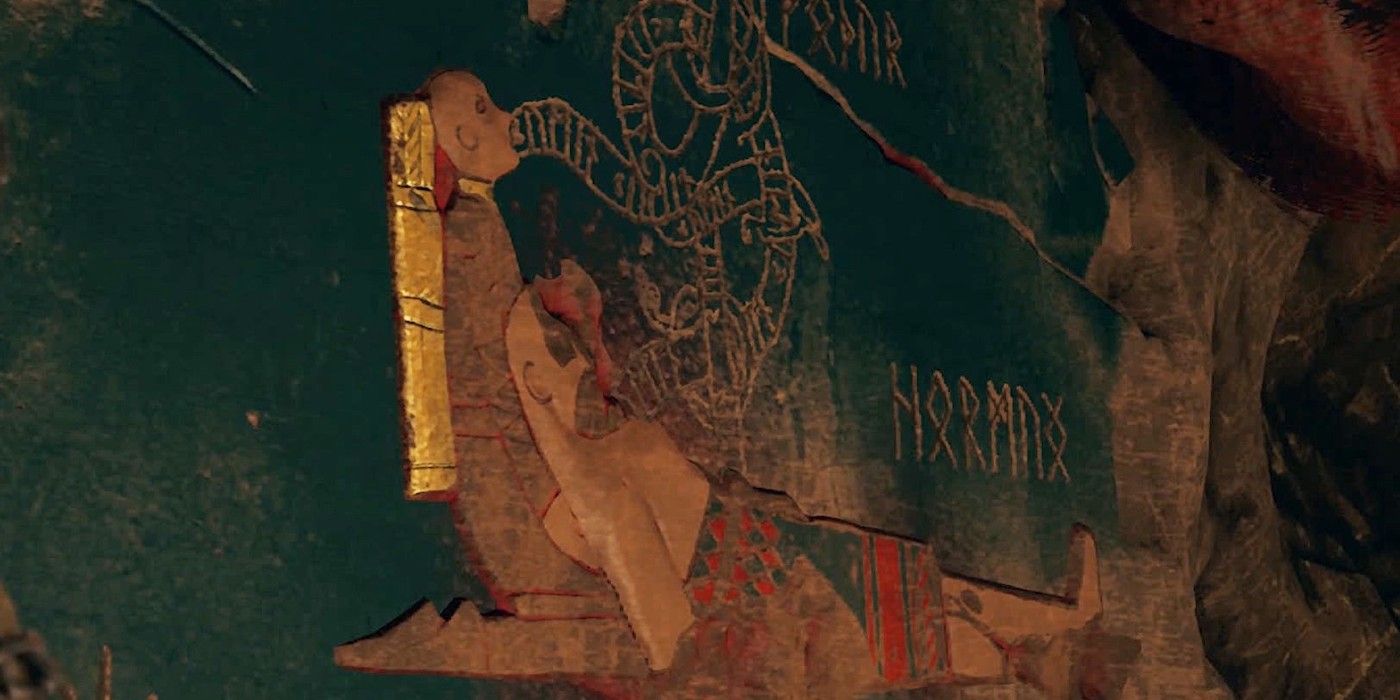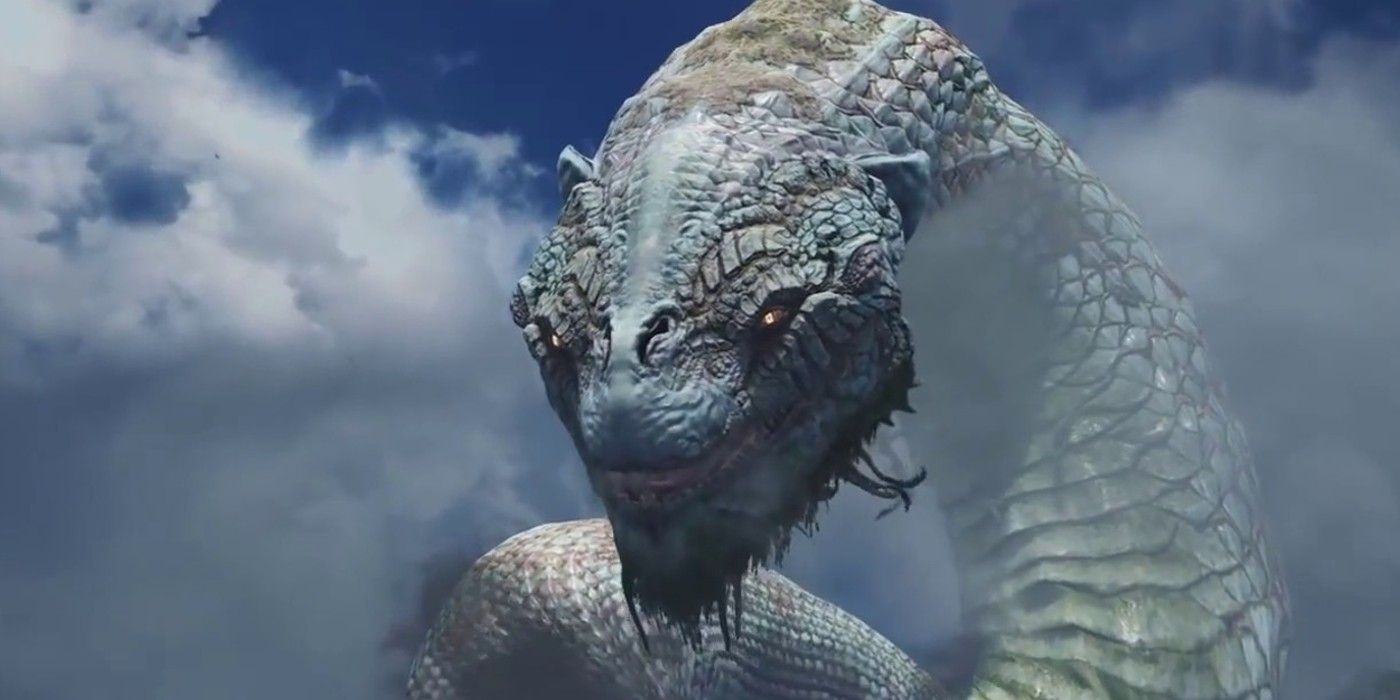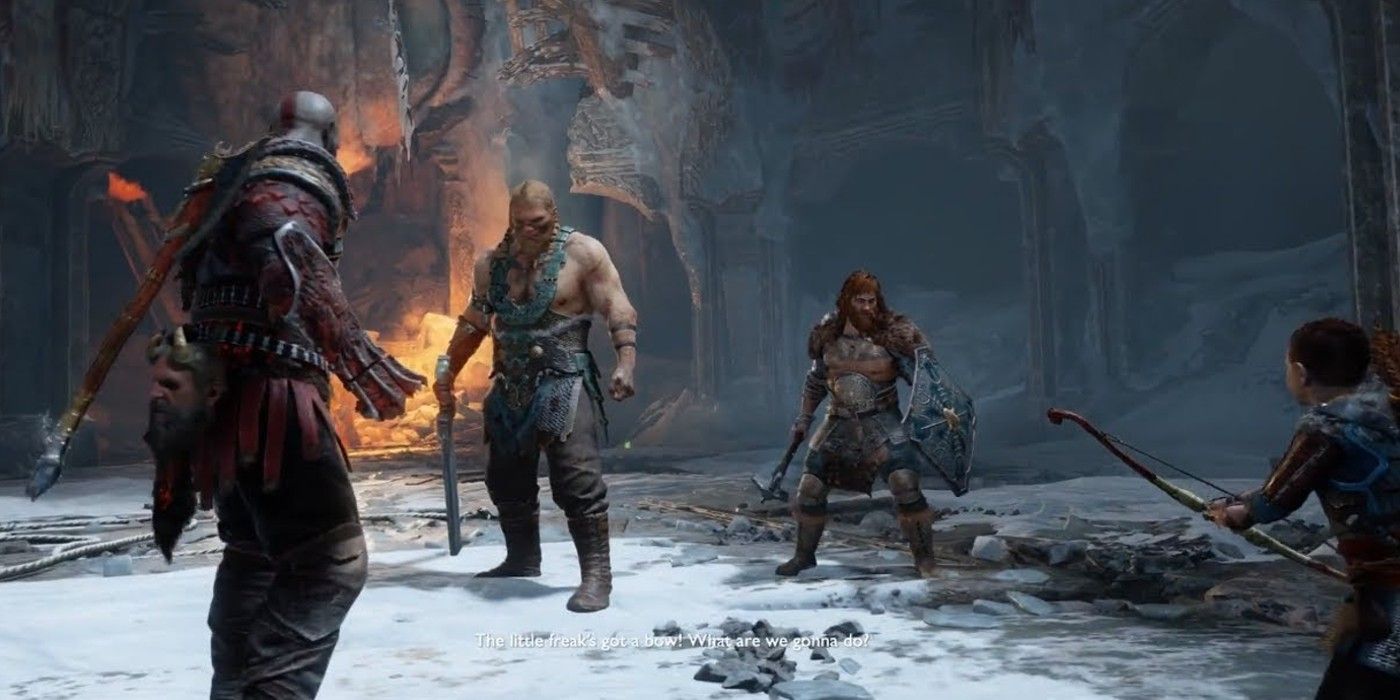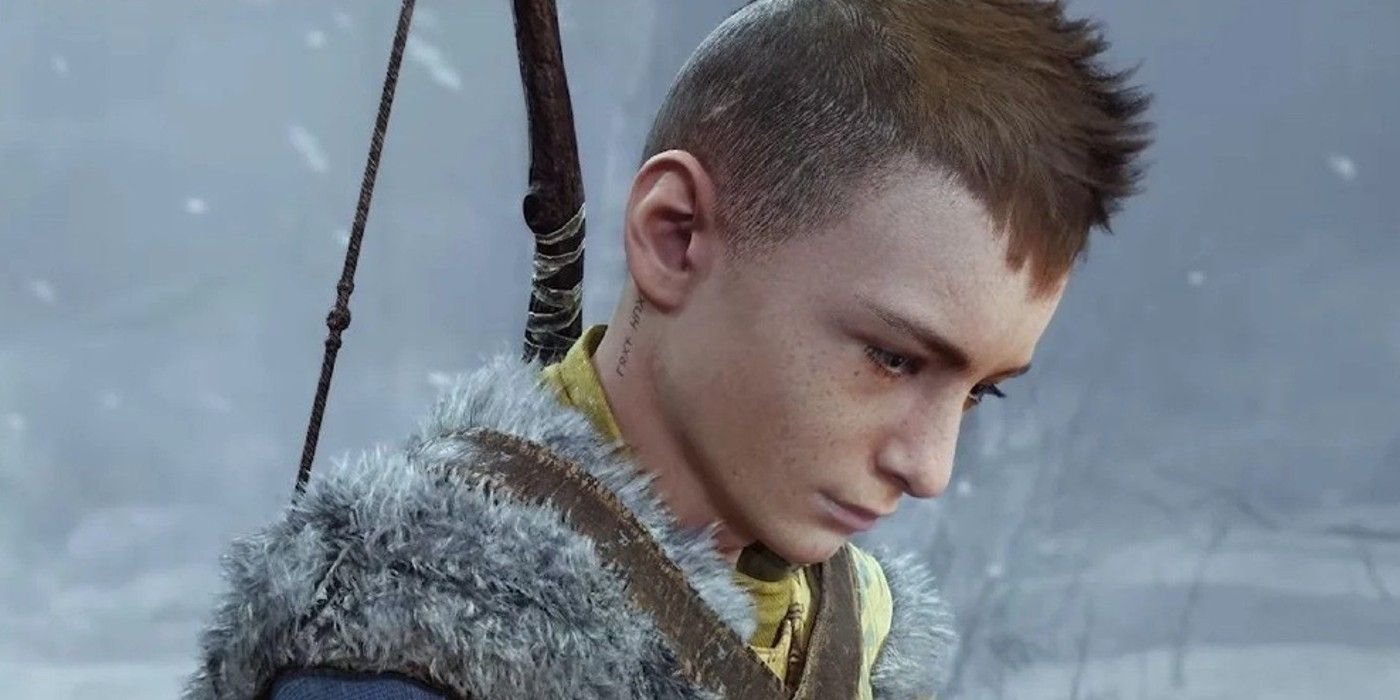Since its first installment, defying destiny and prophecy has been an important theme in God of War, but Ragnarök's prophecy could bring about Kratos' end. Several series with static protagonists have passed the torch through familial lineages, and introducing Atreus could be Santa Monica Studio’s way of continuing the franchise beyond Kratos’ story. Many signs point toward Kratos’ eventual death, but classic God of War games suggest Kratos won’t meet his end in the Norse lands.
Ragnarok's prophecy foretells the fall of many Asgardian gods and the end of the world. It begins after Skoll and Hati catch the Sun and Moon, freeing their father Fenrir and bringing about the doom of the Gods. Thor falls during his battle with Jormungandr, the Midgard Serpent, and Fenrir kills Odin in battle. Both Fenrir and Jormungandr are Loki’s children, making the Trickster God ultimately responsible for the fall of the gods. However, many aspects of Ragnarok and Norse mythology changed in God of War’s canon, including the upbringing of Loki and the familial lineage of Ragnarok’s many Doombringers.
God of War's primary objective requires Kratos and Atreus to spread Laufey’s ashes from the highest point. The Mountain is located in Jotunheim and holds the story of Atreus on its walls, where Kratos discovers a dark revelation. The final carving in Atreus’ story goes unnoticed by the youth but reveals itself to Kratos. The image depicts Atreus holding the (presumed) dead body of Kratos while screaming to the heavens with the Midgard Serpent raging behind him. Though Kratos doesn’t believe in prophecy or destiny, his tone turns dark, and he fails to mention the image to Atreus.
God of War’s Ragnarok Is Already Changed From Norse Myth
Given the many differences between Norse mythology and God of War, prophecies are likely to continue shifting and evolving. Mimir can be trusted to inform both players and Kratos of Norse history in-game, but little else. The stories told while traversing the Nine Realms make for fascinating tales. However, Mimir’s trustworthiness and accuracy as a storyteller are questionable. Piecing together hints from reality’s Norse Mythology and God of War’s Mythology suggests that God of War’s Ragnarok Prophecy has experienced several changes (and may continue to change).
Atreus’ identity as God of War’s Loki was a surprise to many players and one of the biggest twists in the franchise’s latest installment. Few hints toward Atreus’ identity preceded this revelation, but its implications are dire. It appears Atreus may destroy the Norse Pantheon like Kratos destroyed the Greek Pantheon. However, many aspects of Ragnarok’s canon have already changed, including Loki’s name, parentage, and offspring. Though some pantheons appear to be aware of one another, Kratos may be the only god to interfere with another culture’s world. His interference in Loki’s upbringing and the powers bestowed upon his son could bring about an alternative ending to God of War Ragnarok.
Will Kratos Die In God Of War Ragnarok?
Kratos’ defiance of divine will, prophecy, and destiny stretches back to his adventures in God of War's Greek Mythology, where seemingly invincible deities like Zeus and Poseidon crumbled before him. The gods of various pantheons attempt to subvert their doom by destroying or controlling what brings about their ultimate demise. Kratos’ brother, Deimos, is the prime example of this, as the Greek god attempted to murder him and brought about Kratos’ rampage instead. However, Kratos openly defies the prophecy of Ragnarok without knowing its details by murdering Modi and Magni alongside Atreus.
Ragnarok brings about the end of many Norse gods, but few are fated to survive and rebuild from the ashes of destruction. Two of these lucky souls are Modi and Magni, Thor’s sons. Those who experienced God of War 4 know Thor's sons, Modi and Magni, meet bloody ends during the campaign. Magni is nearly beheaded when Kratos buries his ax into his neck, and Modi is stabbed to death by Atreus and pushed off a cliff. The horror Modi displays at the murder of his brother suggests something more profound than fear at the loss of a sibling, as Modi is privy to Ragnarok’s prophecy. If gods fated to survive Ragnarok can die, then gods fated to die can survive.
Atreus Will Decide Kratos’ Fate In God Of War Ragnarok
At God of War 4’s ending, Kratos informs Atreus that the story of their journey to the Mountain wasn’t theirs to share; it was Atreus’ alone. While many aspects of their prophesized journey are correct, Atreus points out that the Giants got his name wrong and kept referring to him as Loki. In mythology, Farbauti fathered Loki with Laufey, but Kratos’ blood gave the boy unique and powerful abilities. Throughout God of War 4’s campaign, Atreus displays an aptitude for Spartan Rage, an ability common throughout the series and one of Kratos’ godly powers. Unfortunately, Atreus cannot control his anger and uses it as a weapon (partly due to his mistaken identity as a mortal). If Atreus can harness his Rage without losing control in God of War Ragnarok, Kratos may be able to survive the game’s events.
Early looks at God of War Ragnarok confirmed the existence of Angrboda, Loki’s Giantess wife and mother of Fenrir, Jormungandr, and Hela. Her teasing nature toward Atreus and urge for him to find the answers he seeks suggests the pair will enjoy a close relationship in-game. Her intentions are currently unknown, though more information concerning her role in Ragnarok’s story is likely to present itself as God of War Ragnarok’s release date draws closer. Should her identity as a Giant remain intact, Angrboda is aware of Atreus’ role in Asgard’s downfall and is eager for him to fulfill his destiny. Ultimately, Atreus’ ability to listen to his father’s teachings or give in to a fate predestined for his life will decide the future of the Norse lands and his father’s fate. Should Atreus control his rage and avoid fighting and killing gods, he escapes the price Kratos had to pay in the first God of War games. However, if Atreus succumbs to his emotions and embraces personal vengeance, it’s likely Kratos’ journey will come to an end.
Aside from in-game stakes, it’s also essential to consider Kratos’ importance to the God of War franchise. His popularity as a character and the connection many players share with him should not be taken lightly. Developers are likely aware of Kratos’ popularity and are probably making a decision for Kratos’ fate based on the future of the series. The appearance of other pantheons and mythologies suggests Kratos could travel to other Pantheons in God of War. Hopefully, Kratos’ ability to conquer destiny and prophecy continues in God of War Ragnarok and beyond.




